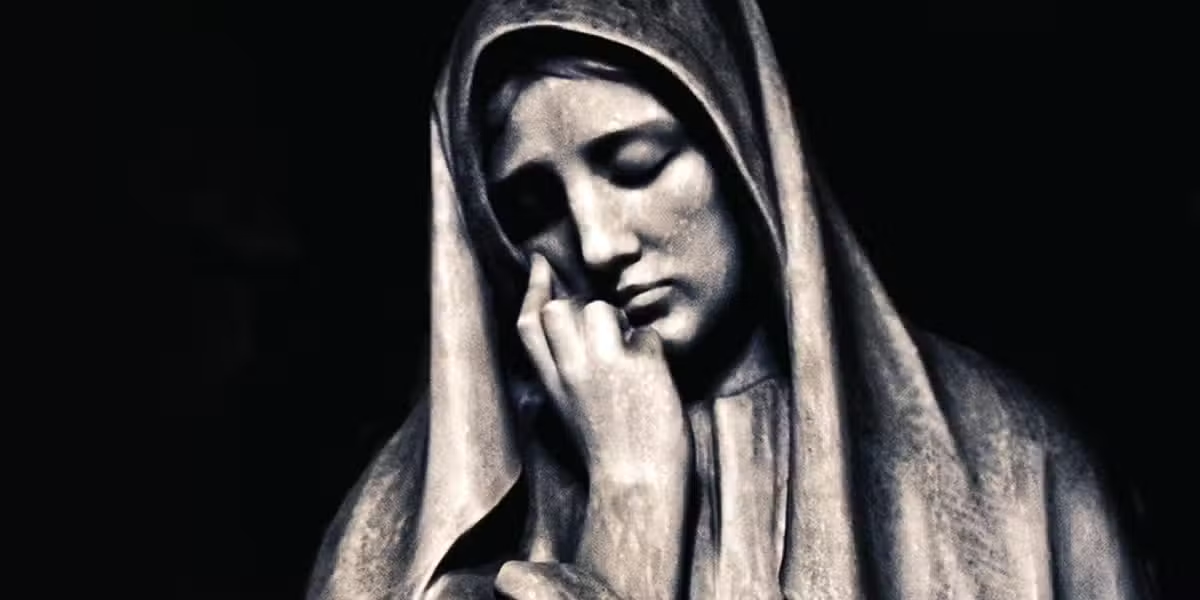Only four Old Testament women are named in Matthew’s genealogy of Jesus (1:1-17), so these must be special great-great-grandmothers. This year, this column will profile three of them, starting with Rahab, a prostitute whose story appears in the Book of Joshua.
Rahab reminds us that God works wonders with unlikely prospects. Her profession might be one strike against her. She’s also on the wrong side when the Hebrew army moves into her land. Ironically, God tells Joshua three times to be “strong and courageous” when invading enemy territory. Rahab, his female ally, also shows those qualities.
After Moses’ death, Joshua is appointed to take possession of the land God promised the Hebrew people. The only problem is the people already occupying the land. (Similar conflicts over land in the Middle East continue today.) So he sends spies into Jericho, the walled city. Apparently, the king of Jericho also has an effective spy net- work, which quickly traces the Hebrew spies to Rahab’s house.
Defying her king’s orders to turn over the Hebrew spies, Rahab lies to protect their lives and hides them in flax stalks on her roof. Sending the king’s soldiers in the wrong direction, she encourages them, “Pursue them quickly, for you can overtake them” (2:5, NRSV). (The Bible does not recount whether she said this breathlessly, with admiring glances, but we can imagine.)
This bright woman is also savvy about guarding her own. There is, of course, a trade-off for hiding the Hebrew spies. Rahab bargains that, when Joshua invades, the army will spare her family. A crimson cord, hung from her window, will show the Hebrew army where her family lives.
In the midst of mayhem and destruction, Rahab creates an island of peace and protection under a small red flag.
Blowing Trumpets
The attack on Jericho is carefully orchestrated. The people, followed by the ark of the Lord, circle the city for seven days, blowing trumpets. (That ritual, with its growing suspense, must have unnerved inhabitants.)
Then Joshua keeps his promise: “Now shout, for the Lord has given you the city….Only Rahab the prostitute and all who are with her in her house shall live because she hid the messengers we sent” (Joshua 6:16-17).
If Rahab overheard that order, she must have nodded with a grin. But there’s more to her than crafty self-interest. She seems honestly impressed by the escape of the Hebrews from Egypt through the Red Sea. She says sincerely, “As soon as we heard it [the story], our hearts melted…” (Joshua 2:11).
Rahab is sensitive and suspects that God’s concern for this people is a force more powerful than she’s ever reckoned with. You gotta admire someone who takes a risk to align herself with the winning side. Beyond pragmatism, a response of wonder and faith seems even more admirable.
God’s Spies
According to legend, Rahab married one of the spies. (He must have looked appealing with flax stalks in his hair.) The Book of Joshua says only that her family lived in Israel.
Matthew records that she became the mother of Boaz, Ruth’s husband. We can infer that Rahab remained in awe of the God who accomplished so much through her. Her model shows us how to live from a pool of gratitude. Rahab played her part, cooperating cleverly and saving her family, doing in a small way what her descendant Jesus would do for all humanity.
She also reveals the hidden spirituality of spies. At the end of King Lear, the mad king who has lost everything proposes: “So we’ll live…/And take upon [u]s the mystery of things,/As if we were God’s spies.”
In Lost in Wonder: Rediscovering the Spiritual Art of Attentiveness, Esther De Waal explains that a shrewd spy is alert to every hint, that might aid an employer. To be God’s spy means probing mystery and finding there a treasure. Careful, quick-thinking, active, articulate: Such people are attentive to every hint of God’s presence. In that sense, Rahab could be patron saint of spies.
So when you sing that lively ballad about the Battle of Jericho, which tells of priests blowing trumpets and people shouting, concluding with the rousing chorus, “And the walls came tumbling down,” remember Rahab.








